No results found

We are EMBL: Neil Humphreys on genome editing and saying it all in five simple words
Meet Neil Humphreys, Head of the Gene Editing and Virus Facility at EMBL Rome. Neil and his team work closely with scientists to develop new models, tools, and cutting-edge technologies to support discovery and translational research.
PEOPLE & PERSPECTIVES2025
people-perspectives

Scientists map yerba mate genome
Yerba mate is a popular caffeinated beverage. Scientists mapped its genome, revealing surprising facts about its biochemistry and the evolution of caffeine biosynthesis. The findings might pave the way for new varieties of yerba mate.
SCIENCE & TECHNOLOGY2025
science-technology

An epigenome editing toolkit to dissect the mechanisms of gene regulation
A study from the Hackett group at EMBL Rome led to the development of an epigenetic editing system that allows to precisely program chromatin modifications at any specific position in the genome, to understand their causal role in transcription regulation.
SCIENCE & TECHNOLOGY2024
science-technology

Ensembl Bacteria releases new annotation for all its genomes
Ensembl 110 and Ensembl Genomes 57 have introduced in-house prokaryotic gene annotation across genomes available in Ensembl Bacteria. Since its inception, Ensembl Bacteria has imported user-submitted annotations from the International Nucleotide Sequence Database Collaboration (INSDC) for…
2023
updates-from-data-resources

refget v2.0 links the hidden dictionaries of DNA
The GA4GH standard refget quietly helps decipher millions of genomes sequenced worldwide, and it just got better.
2023
technology-and-innovation
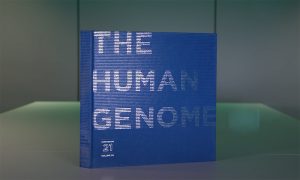
The Human Genome Project at 20: interview with Ewan Birney
On the 20th anniversary of the Human Genome Project, we look back at its history, wonder and potential.
LAB MATTERSPEOPLE & PERSPECTIVES2023
lab-matterspeople-perspectivesperspectives

Welcome: Thomas Quail
New group leader Thomas Quail studies the fundamental processes that determine how proteins organise the genome inside a cell.
LAB MATTERSPEOPLE & PERSPECTIVES2023
lab-matterspeople-perspectives

Studying epigenetic regulation at the single-molecule level
In a first-of-its-kind study, EMBL researchers have shown how DNA methylation across the genome contributes to the precise regulation of gene expression.
2023
science
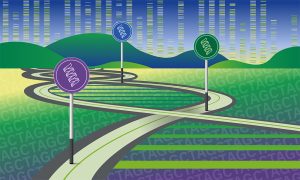
Uncharted territories in the human genome
Scientists identify previously unexplored gene segments to be added to human genome databases.
SCIENCE & TECHNOLOGY2022
research-highlightssciencescience-technology

Royal Society honour for Eileen Furlong
EMBL’s Head of Genome Biology announced as Fellow of the Royal Society for her exceptional contributions to science.
EMBL ANNOUNCEMENTSLAB MATTERS2022
embl-announcementslab-matters

Flip-flop genome
Researchers at EMBL Heidelberg found that inversions in the human genome are more common than previously thought, which impacts our understanding of certain genetic diseases.
SCIENCE & TECHNOLOGY2022
sciencescience-technology

Understanding genomes, piece by piece
Genomes are made up of thousands of individual pieces – genes – which are expressed at different levels. Researchers at EMBL have shed light on how the placement of a gene affects its expression, as well as that of its neighbours.
SCIENCE & TECHNOLOGY2022
sciencescience-technology

New genetic data policy must promote biodiversity conservation
Scientists urge the adoption of a sensible international policy for digital sequence information.
SCIENCE & TECHNOLOGY2022
announcementssciencescience-technology
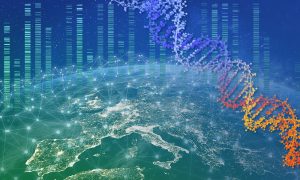
The Earth Biogenome Project: on track and ready to ramp up
On track to reach an ambitious goal of 3,000 genomes sequenced by the end of 2022, what’s next for the Earth Biogenome Project?
SCIENCE & TECHNOLOGY2022
announcementssciencescience-technology
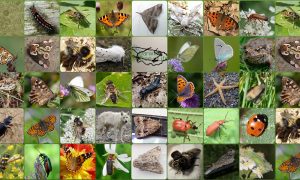
Darwin Tree of Life in 2021: tireless fieldwork and the first beautiful genomes
A look back at some of the 2021 highlights from the Darwin Tree of Life partner institutes.
SCIENCE & TECHNOLOGY2021
sciencescience-technology
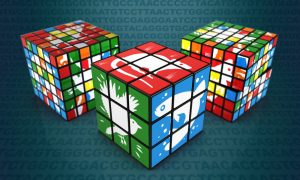
Piecing together the best reference genome
Researchers reveal the best technology for assembling reference genomes.
SCIENCE & TECHNOLOGY2021
sciencescience-technology
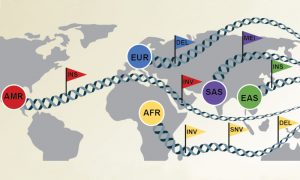
Human genomes provide new reference for global genetic diversity
A collaboration including EMBL scientists has created the most diverse set of reference human genomes ever assembled.
SCIENCE & TECHNOLOGY2021
sciencescience-technology

The curious genome of the tuatara, an ancient reptile in peril
A global team of researchers including the Flicek Team at EMBL-EBI has partnered up with the Māori tribe Ngātiwai to sequence the genome of the tuatara, a rare reptile endemic to New Zealand.
SCIENCE & TECHNOLOGY2020
sciencescience-technology

Bagpipe and Pokemon, or how not to name a human gene
The human genome harbours about 19 000 protein-coding genes, many of which still have no known function. As scientists unveil the secrets of our DNA, they come across novel genes that they need to refer to using a unique name. The Human Genome Organisation’s Gene Nomenclature Committee (HGNC) at…
SCIENCE & TECHNOLOGY2020
sciencescience-technology
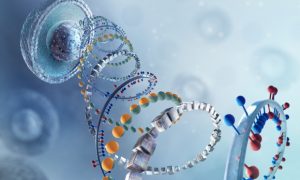
EMBL boosts national and international sharing of genomic data
A national consortium including EMBL and the DKFZ is set to launch the German Human Genome–Phenome Archive, creating an invaluable bridge between fundamental biomedical research and applied healthcare.
CONNECTIONSLAB MATTERS2020
connectionslab-matters

The Pan-Cancer project
EMBL co-leads most comprehensive study of genetic causes of cancer
SCIENCE & TECHNOLOGY2020
sciencescience-technology

Protecting data in the cloud
Cloud computing offers unprecedented opportunities for global-scale research collaborations. It also presents a unique set of challenges in terms of data protection and the ethics of data sharing.
SCIENCE & TECHNOLOGY2020
sciencescience-technology
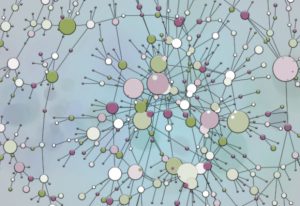
Characterising RNA alterations in cancer
The largest and most comprehensive catalogue of cancer-specific RNA alterations reveals new insights into the cancer genome.
SCIENCE & TECHNOLOGY2020
sciencescience-technology

Cancer mutations occur decades before diagnosis
Researchers at EMBL’s European Bioinformatics Institute (EMBL-EBI) and the Francis Crick Institute have analysed the whole genomes of over 2600 tumours from 38 different cancer types to determine the chronology of genomic changes during cancer development.
SCIENCE & TECHNOLOGY2020
sciencescience-technology
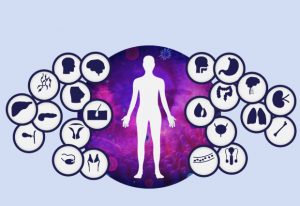
Studying DNA rearrangement to understand cancer
Using the dataset from the Pan-Cancer project, scientists has developed methods to group, classify, and describe large rearrangements of the genome that are a key driver of cancer.
SCIENCE & TECHNOLOGY2020
sciencescience-technology

Scientists identify new genetic drivers of cancer
Analysis of whole cancer genomes gives key insights into the role of the non-coding genome in cancer
SCIENCE & TECHNOLOGY2020
sciencescience-technology
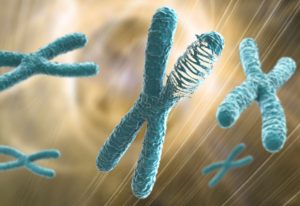
Chromothripsis in human cancer
Researchers at Harvard Medical School and EMBL-EBI have carried out the largest analysis across cancer types of the newly discovered mutational phenomenon chromothripsis.
SCIENCE & TECHNOLOGY2020
sciencescience-technology

Finding genetic cancer risks
Using the data from the Pan-Cancer project EMBL scientists describe how our genetic background influences cancer development.
SCIENCE & TECHNOLOGY2020
sciencescience-technology

Editing the ethical code
Professor Tim Lewens challenges the human genome’s unique place in bioethics
LAB MATTERS2019
eventslab-matters
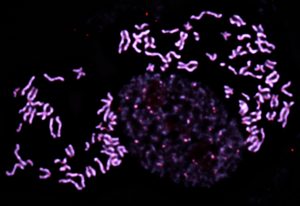
Catalogue of structural variants
Thorough characterisation of structural variants in human genomes
SCIENCE & TECHNOLOGY2019
sciencescience-technology
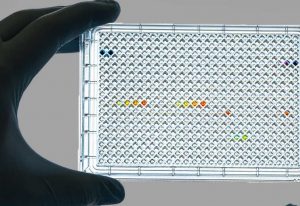
Prioritising cancer drug targets using CRISPR
Large CRISPR screen prioritises hundreds of promising genes for personalised cancer treatment
SCIENCE & TECHNOLOGY2019
sciencescience-technology

Almost 2000 unknown gut bacteria discovered
Researchers identify novel gut bacteria species and call for more data from beyond Europe and North America
SCIENCE & TECHNOLOGY2019
sciencescience-technology
Deleting genes to study how germ cells are born
How embryonic stem cells develop into the germ line
SCIENCE & TECHNOLOGY2018
sciencescience-technology
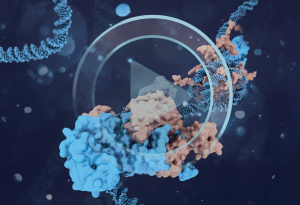
Transcription factors controlled by DNA sequence
EMBL scientists gain mechanistic insights into how cellular signalling controls gene regulation
SCIENCE & TECHNOLOGY2018
sciencescience-technology
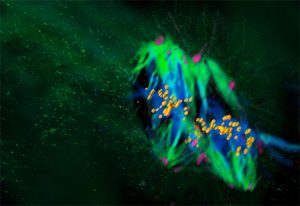
Parental chromosomes kept apart during first division
Mammalian life begins differently than we thought
SCIENCE & TECHNOLOGY2018
sciencescience-technology
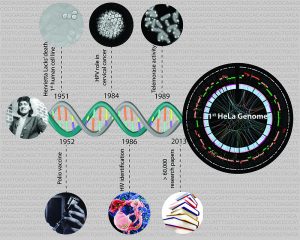
Havoc in biology’s most-used human cell line
HeLa cells are the world’s most commonly used human cell lines, and have served as a standard for understanding many fundamental biological processes. In a study published today in G3: Genes, Genomes and Genetics online, scientists at the European Molecular Biology Laboratory in…
SCIENCE & TECHNOLOGY2013
sciencescience-technology
The mutation police
Scientists at the EMBL-European Bioinformatics Institute (EMBL-EBI) and the MRC Laboratory of Molecular Biology in the UK have discovered how our genome keeps the effects of mutations in check. The discovery, published in the journal Cell, will help in the study of diseases such as cancer and…
SCIENCE & TECHNOLOGY2013
sciencescience-technology
Spot the difference
In a nutshell: 1st map combining human genetic variation at different scales – from single letters to large chunks Based on genomes of 1092 healthy people from Europe, the Americas and East Asia Could help identify genetic causes of disease, rather than just links Data made freely available in…
SCIENCE & TECHNOLOGY2012
sciencescience-technology
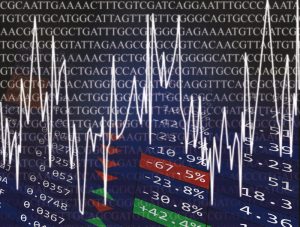
A matter of priorities
Just as banks store away only the most valuable possessions in the most secure safes, cells prioritise which genes they guard most closely, researchers at the European Molecular Biology Laboratory’s European Bioinformatics Institute (EMBL-EBI) have found. The study, published online today…
SCIENCE & TECHNOLOGY2012
sciencescience-technology
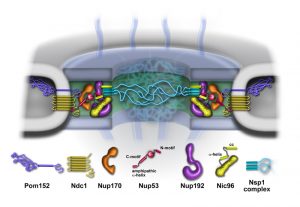
A hot species for cool structures
A fungus that lives at extremely high temperatures could help understand structures within our own cells. Scientists at the European Molecular Biology Laboratory (EMBL) and Heidelberg University, both in Heidelberg, Germany, were the first to sequence and analyse the genome of a heat-loving fungus,…
SCIENCE & TECHNOLOGY2011
sciencescience-technology
The human genome’s breaking points
A detailed analysis of data from 185 human genomes sequenced in the course of the 1000 Genomes Project, by scientists at the European Molecular Biology Laboratory (EMBL) in Heidelberg, Germany, in collaboration with researchers at the Wellcome Trust Sanger Institute in Cambridge, UK, as well as the…
SCIENCE & TECHNOLOGY2011
sciencescience-technology
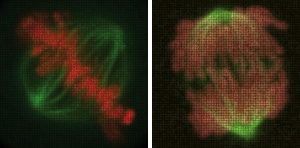
Movies for the human genome
Name a human gene, and you’ll find a movie online showing you what happens to cells when it is switched off. This is the resource that researchers at the European Molecular Biology Laboratory (EMBL) in Heidelberg, Germany, and their collaborators in the Mitocheck consortium are making freely…
SCIENCE & TECHNOLOGY2010
sciencescience-technology
Raising the alarm when DNA goes bad
Our genome is constantly under attack from things like UV light and toxins, which can damage or even break DNA strands and ultimately lead to cancer and other diseases. Scientists have known for a long time that when DNA is damaged, a key enzyme sets off a cellular ‘alarm bell’ to alert the…
SCIENCE & TECHNOLOGY2009
sciencescience-technology
Researchers establish international human microbiome consortium
Today at a meeting organised by the European Molecular Biology Laboratory (EMBL) in Heidelberg, Germany, scientists from around the globe announced the formation of the International Human Microbiome Consortium (IHMC), an effort that will enable researchers to characterise the relationship of the…
LAB MATTERS2008
lab-matters
Open access to large-scale drug discovery data
The Wellcome Trust has awarded £4.7 million (€5.8 million) to EMBL’s European Bioinformatics Institute (EMBL-EBI) to support the transfer of a large collection of information on the properties and activities of drugs and a large set of drug-like small molecules from the publicly listed…
LAB MATTERS2008
lab-matters
Platypus genome sequence published
UK-based researchers at the Medical Research Council Functional Genomics Unit in Oxford and the European Molecular Biology Laboratory’s European Bioinformatics Institute in Cambridge have revealed the genetic makeup of the one of the world’s strangest mammals. They have analysed the DNA…
SCIENCE & TECHNOLOGY2008
sciencescience-technology
International consortium announces the 1000 Genomes Project
Drawing on the expertise of multi-disciplinary research teams, the map developed by the 1000 Genomes Project will provide a view of biomedically relevant DNA variations at a resolution unmatched by current resources. The European Bioinformatics Institute (EBI), working with long-term collaborator…
LAB MATTERS2008
lab-matters
New findings challenge established views about human genome
The ENCyclopedia Of DNA Elements (ENCODE), an international research consortium organised by the National Human Genome Research Institute (NHGRI), part of the National Institutes of Health (NIH), today published the results of its exhaustive, four-year effort to build a “parts list” of…
SCIENCE & TECHNOLOGY2007
sciencescience-technology
The closest look ever at the cell’s machines
Today researchers in Germany announce they have finished the first complete analysis of the “molecular machines” in one of biology’s most important model organisms: S. cerevisiae (baker’s yeast). The study from the biotechnology company Cellzome, in collaboration with the…
SCIENCE & TECHNOLOGY2006
sciencescience-technology
Public collections of DNA and RNA sequence reach 100 gigabases
The world’s three leading public repositories for DNA and RNA sequence information have reached 100 gigabases (100,000,000,000 bases; the ‘letters’ of the genetic code) of sequence. Thanks to their data exchange policy, which has paved the way for the global exchange of many types…
CONNECTIONSLAB MATTERS2005
connectionslab-matters

Hunt for human genes involved in cell division under way
A systematic search through human genes has begun at the European Molecular Biology Laboratory (EMBL) in Heidelberg, Germany. Working within the MitoCheck consortium that includes 10 other institutes throughout Europe, the EMBL scientists will silence all human genes, one-by-one, to find those…
CONNECTIONSLAB MATTERS2005
connectionslab-matters
Whale bones and farm soil: Sequencing biodiversity
Instead of sequencing the genome of one organism, why not sequence a drop of sea water, a gram of farm soil or even a sunken whale skeleton? Scientists at the European Molecular Biology Laboratory (EMBL) in Heidelberg and their US collaborators have done just that, and the result is a new…
SCIENCE & TECHNOLOGY2005
sciencescience-technology